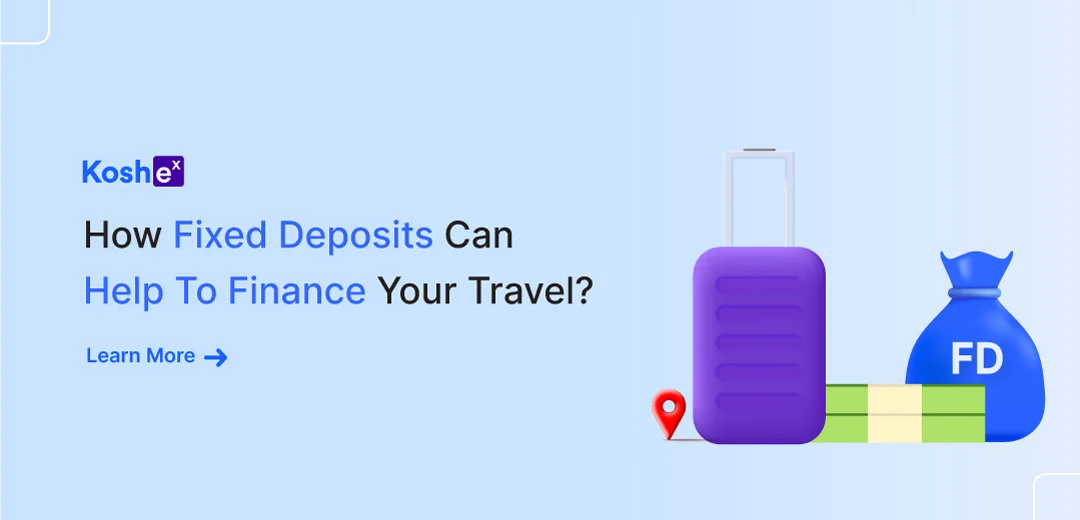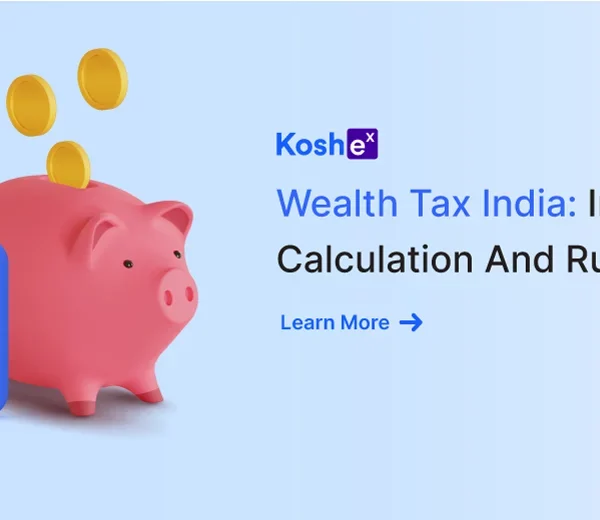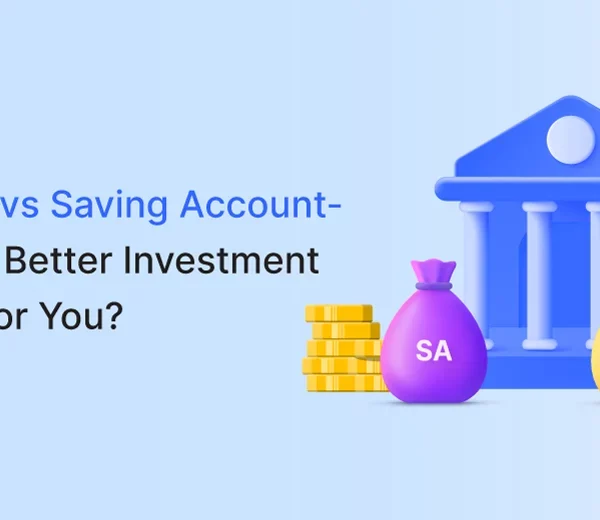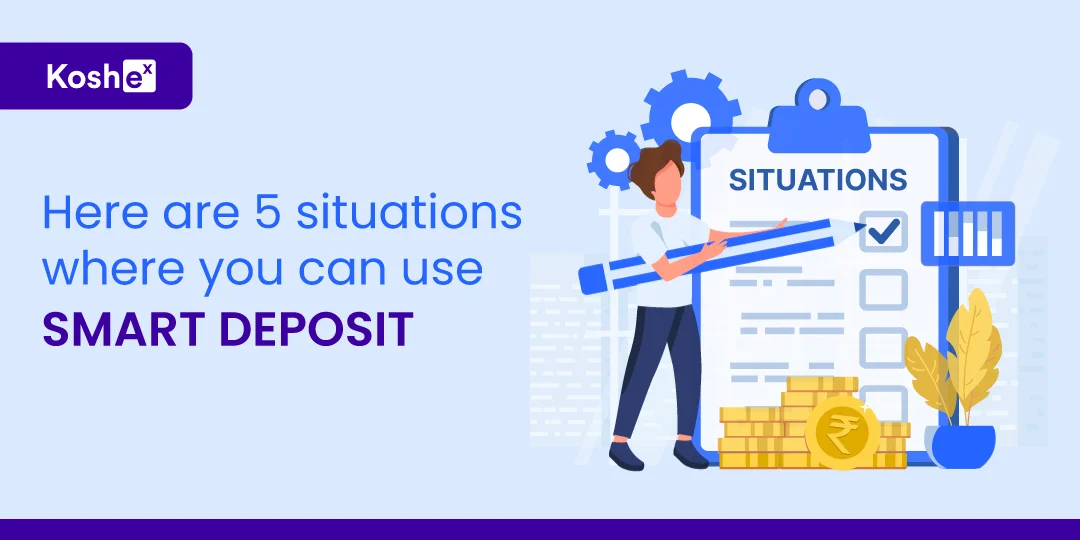There’s something about travel that makes everyone happy even before we start sketching out the finer nuances of traveling. Stepping away from the predictable rhythm of daily life brings a refreshing change of perspective and experience.
Nearly all of us have a list of dream destinations we want to travel to. But, more often than not, we put our desire to travel on hold due to a lack of funds.
This holds for most of us, and the primary reason for our lack of funds is our lack of financial planning. We save our money and even invest it but do not consider investing it based on achieving our financial goals.
If traveling is one of our goals, then this can be reached via the safest route through Fixed Deposits (FDs).
How can FDs Help Finance our Travel?
Regarding investing our surplus money, FDs have proven to be the safest way, with high-interest rates that can help finance our travel goal. Let’s look at how FDs help us achieve our travel goals:
Secure investment: FDs offer a fixed rate of return and are more secure than other investment options, mainly the ones which are market linked, as their returns fluctuate. That means even if the rates fall, one gets the same rate of return at the time of opening the FD. If opened in the national bank, FDs are more secure.
Flexible tenure: An FD can be opened for a flexible duration ranging from 7 days to 10 years. So, for example, if you plan to travel after three years, you can open an FD account with a tenure of 36 months or three years and invest your money to achieve your traveling goal.
Interest rate ranges from 6.5% to 7.75% depending on the bank, the duration of the FDs, and the amount of money invested. FDs provide a higher interest rate and are more suitable for achieving financial and lifestyle goals like traveling.
Also, the interest rate is even higher if an FD account is opened with a Housing Finance Company (HFC) or a Non-Banking Financial Company (NBFC). However, when investing in companies or NBFCs, it is essential to take note of their credit rating. Large HFCs and NBFCs offer a higher interest rate than banks and are also safe to invest in.
Investment amounts: FD accounts can be opened even with small amounts for as low as Rs 1,000 to Rs. 10,000.
Recurring deposit account: Many banks also provide a facility for investing small amounts periodically in an FD account. This facility is known as a recurring deposit account. So, if one doesn’t have an option of investing a large amount in one go, they can start investing small amounts every month and take a step towards achieving their financial goals.
Tax saving plus travel goal: If your travel goal is five years away, you can achieve a dual purpose of saving tax and fulfilling the travel goal. Many banks offer tax savings FD accounts that have a lock-in of five years. It helps save tax up to Rs 1,50,000 in a financial year under Section 80C of The Income Tax Act, 1961.
Higher interest rates for senior citizens: FDs offer a higher interest rate to senior citizens compared to the FD accounts opened by someone who doesn’t fall under this category. So, if you are a senior citizen, it is a win-win situation as you will get higher interest rates.
Access to funds: The actual plan involves expenses ahead of travel as it typically includes booking travel tickets, stay, and visa (if travel is international), among other things. This planning requires access to funds and a proper investment plan considering the travel timeline. FDs can be a source of these funds and provide much better returns and easy access to liquidity at the time of need for funds.
TDS on FD interest: If the total claim from all FDs exceeds Rs 40,000 for a financial year, TDS is deducted at 10%. This limit of Rs 40,000 is extended to Rs 50,000 if the FD account holder is a senior citizen.
However, if one’s total taxable income for the year is less than Rs 2,50,000, they can opt for non-deduction of TDS by filling forms 15G or 15H. They can specifically instruct the bank that their annual taxable income is below the specified threshold limit; hence, TDS on their FD accounts should not be deducted.
Final Takeaway
Traveling can be an enriching experience but can also be stressful if not planned properly. To avoid unwanted surprises, planning your vacation well in advance is essential.
This involves selecting a destination that suits your interests and budget and carefully considering the type of accommodation and transportation you will need.
Furthermore, creating a comprehensive budget that includes fixed and variable expenses is essential. This will help ensure you have enough money to cover all your costs, including unforeseen emergencies that may arise during your trip.
For instance, you can account for expenses like airfare, lodging, food, transportation, and activities and contingencies for medical emergencies, travel cancellations, or lost luggage.
One way to build a solid financial foundation for your travels is to invest in FDs, which can help you accumulate the necessary funds for your trip.
FDs offer a low-risk, high-return investment opportunity with guaranteed returns that can provide you with the funds needed to cover your travel expenses.
By planning and budgeting for your trip carefully and considering investing in FDs to ensure financial security, you can turn your travel dreams into a reality and enjoy a peaceful, hassle-free vacation. Make your travel goals easy to achieve with simple, easy-to-follow investment plans with Koshex.
Frequently Asked Questions
Q1. Is it necessary to earmark an FD specifically for travel goals?
It is not necessary but helps achieve one’s financial goal with a little more discipline, ensuring the timely availability of money for travel.
Q2. How do I ensure that the money needed for my travel will be compensated through FDs?
In this case, you need to plan your expenses for travel and work out a suitable budget for your travel. Take into consideration factors such as how much money you will need for travel, air tickets, hotel reservations, food, and local sightseeing. Foreign currency fluctuations should also be considered if your travel location is international.
Depending on these factors, figure out a lump sum amount required for travel. Now, based on current interest rates and tentative dates, you can confirm your travel plans.
Q3. Can I achieve my travel goal through investments other than FDs?
You can surely do that, but other investment avenues do not match the safety of funds, and the returns guarantee that FDs provide. It is because they are mostly linked to market fluctuations and can be riskier than an FD account.
Q4. Should I opt for the monthly/quarterly or yearly interest payout option, or should I opt for the whole amount (interest plus principal) on maturity?
The payout option mainly depends on your goals; if you are planning your travel in a way that might require some funds before the actual travel date, then you can opt for a payout as per your desired frequency. However, if the funds are needed all at once, then opting for a payout on maturity is more suitable.
Q5. Can I withdraw the money from my FD account before its maturity?
Yes, you can withdraw money from your FD account before maturity. You have to note that most banks charge a penalty for withdrawing money from the FD account before maturity, which might hamper achieving your financial goal.









Leave a Comment